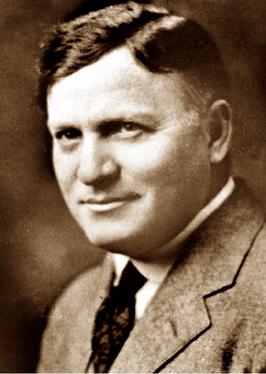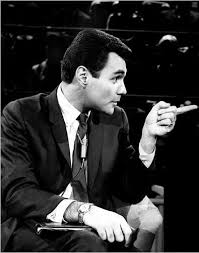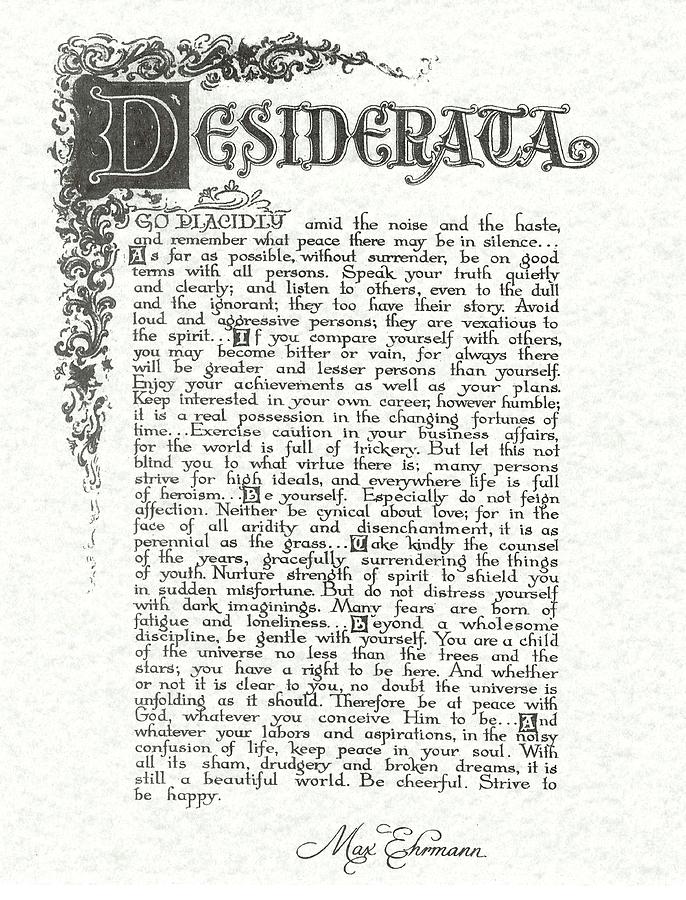Desiderata
In about 1960, the rector of a church in Maryland put together a compilation of prayers, hymns and poems for the congregation, and included amongst it was a poem called Desiderata. The compilation also included the church’s name and foundation date (Old Saint Paul’s Church, Baltimore, AD 1692), which many readers mistakenly took to be the date of the poem’s composition. The truth was a little more prosaic – it was the work of an Indiana lawyer in the early 1920s.

The lawyer, Max Ehrmann, is thought to have written Desiderata primarily for himself, since he felt in need of wise counsel at the time, yet the appeal of the poem eventually proved to be universal – it spoke of the need to take life a little more slowly and cautiously, and the need to be kind and gentle.
It didn’t receive very much attention until the early 1970s, about twenty five years after the author’s death, with the release of a spoken-word record by Les Crane. The record was quite unlike the pop singles of the time, yet it became a worldwide success, and is still loved and appreciated fifty years on.
Among his many guests were Martin Luther King, Malcolm X, George Wallace, Robert F. Kennedy and Bob Dylan. The Rolling Stones also appeared on his show, in 1964, the first time they’d been on TV in America.
In 1965, Crane married actress Tina Louise, who played Ginger on Gilligan’s Island, and they had a daughter, Caprice, in 1971. In 1980, he became chairman of a Silicon Valley company, Software Toolworks, producer of computer games such as Chessmaster 2000, as well as Mavis Beacon Teaches Typing.
He died in 2008, of natural causes. I’m sure he’ll be remembered for all kinds of reasons, but for many he will be remembered most for his wonderful narration of this classic poem.
Once the public had a taste of Desiderata, the flood gates opened; virtually an entire industry sprang up almost overnight, producing a myriad posters of the poem in various designs and many of them featuring beautiful calligraphy (though some, frankly, were less attractive). The posters adorned the walls of students, older people, spiritually inclined people, and those who felt in need of guidance of some kind.
 No doubt many of the posters are still in place today, fifty years on, such is the appeal of the poem. In fact, many people who first heard it on the Les Crane recording have followed the poem’s guidance throughout their lives.
No doubt many of the posters are still in place today, fifty years on, such is the appeal of the poem. In fact, many people who first heard it on the Les Crane recording have followed the poem’s guidance throughout their lives.
The recording, with the repeated refrain “You are a child of the Universe, no less than the trees and the stars; you have a right to be here”, is a heart warming rendition of a simple yet very beautiful poem, and one that deserves to be heard.

